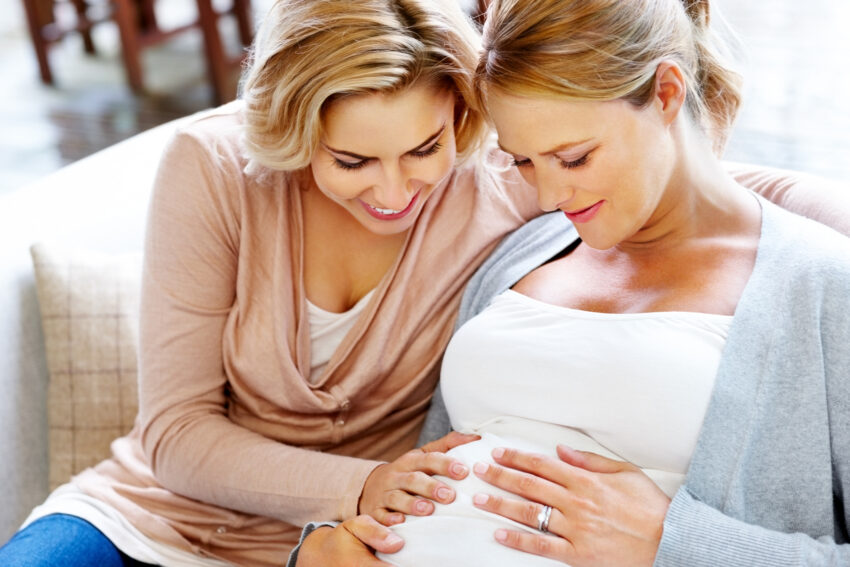Polycystic Ovary Syndrome (PCOS) is a common condition that affects women of reproductive age. It is characterized by a hormonal imbalance that can lead to various symptoms, such as irregular periods, acne, and excessive hair growth. PCOS can also impact fertility and pregnancy, and it’s essential to be aware of this condition if you’re considering egg donation or IVF treatment. We will discuss the best egg donation centre in Noida and the best IVF doctor in Noida and answer some frequently asked questions about PCOS among egg donors and recipients.
What is PCOS?
PCOS is a hormonal disorder that affects the ovaries and is characterized by an imbalance of hormones such as estrogen and progesterone. It is one of the most common causes of infertility in women. The symptoms of PCOS can vary, but some of the most common include irregular periods, acne, and excessive hair growth. PCOS can also lead to weight gain, insulin resistance, and an increased risk of developing type 2 diabetes and heart disease.
The causes of PCOS are not fully understood, but it is thought to be a combination of genetic and environmental factors. Some risk factors for PCOS include obesity, a family history of the condition, and high insulin levels in the body.
PCOS can have a significant impact on fertility and pregnancy. Women with PCOS often have difficulty ovulating, making it challenging to conceive naturally. Additionally, women with PCOS are at an increased risk of miscarriage and gestational diabetes during pregnancy.
The diagnosis of PCOS is based on the presence of two of the following three criteria:
- Irregular periods
- High levels of androgens (male hormones)
- The presence of multiple cysts on the ovaries
Treatment options for PCOS include lifestyle changes, such as weight loss and exercise, as well as medication, such as birth control pills and insulin-sensitizing drugs.
PCOS among egg donors
PCOS is a common condition among women of reproductive age and is also prevalent among egg donors. Women with PCOS may have difficulty ovulating, making it challenging to become egg donors. Additionally, women with PCOS are at an increased risk of miscarriage and gestational diabetes during pregnancy.
Egg donation centres are aware of the impact of PCOS on the egg donation process and success rates, and they have screening and treatment options in place to identify and treat the condition among egg donors. These options include lifestyle changes, such as weight loss and exercise, as well as medication, such as birth control pills and insulin-sensitizing drugs.
The egg donation centre in Noida that we recommend is known for its high-quality services, experienced staff, and high success rate. The egg donors at the centre are thoroughly screened, including a physical exam, blood tests, and a psychological evaluation. The egg donation process at the centre is done under the supervision of a qualified and experienced doctor, and the success rates are among the best in the industry. Additionally, the center provides a comfortable and supportive environment for egg donors and recipients.
PCOS among egg recipients
PCOS can also impact the success rates of IVF treatment among egg recipients. Women with PCOS are at an increased risk of miscarriage and gestational diabetes during pregnancy, and they may have difficulty ovulating, which can make it challenging to conceive with IVF.
IVF doctors in Noida are well-equipped to identify and treat PCOS among egg recipients. They offer a wide range of services to help couples and individuals achieve their dreams of parenthood, and they use the latest technology and techniques to ensure the best possible outcome for their patients.
The best IVF doctor in Noida we recommend is known for their expertise, experience, and high success rate. The doctor is highly qualified and experienced, with many years of experience in IVF. They use the latest technology and techniques to ensure the best possible outcome for their patients. Additionally, doctor provides a comfortable and supportive environment for their patients, and they are always available to answer any questions or concerns their patients may have.
FAQ
Q: How common is PCOS among egg donors and recipients?
A: PCOS is a common condition that affects women of reproductive age, and it’s also prevalent among egg donors and recipients. It’s essential to be aware of this condition if you’re considering egg donation or IVF treatment.
Q: Can PCOS impact egg donation and IVF treatment success rates?
A: PCOS can impact egg donation and IVF treatment success rates. Women with PCOS may have difficulty ovulating, making it challenging to become an egg donor or conceive with IVF. Additionally, women with PCOS are at an increased risk of miscarriage and gestational diabetes during pregnancy.
Q: What are the screening and treatment options for PCOS among egg donors and recipients?
A: The screening and treatment options for PCOS among egg donors and recipients include lifestyle changes, such as weight loss and exercise, as well as medication, such as birth control pills and insulin-sensitizing drugs.
Q: Is it possible to donate eggs if I have PCOS?
A: It is possible to donate eggs if you have PCOS. However, the egg donation process may be more challenging for women with PCOS, as they may have difficulty ovulating. Additionally, women with PCOS are at an increased risk of miscarriage and gestational diabetes during pregnancy.
Q: Can PCOS be treated during IVF treatment?
A: Yes, PCOS can be treated during IVF treatment. IVF doctors are well-equipped to identify and treat PCOS among egg recipients and use the latest technology and techniques to ensure the best possible outcome for their patients.
